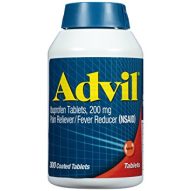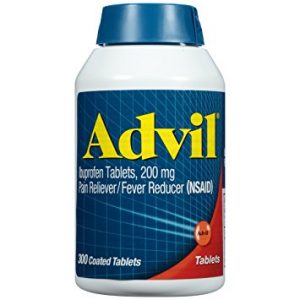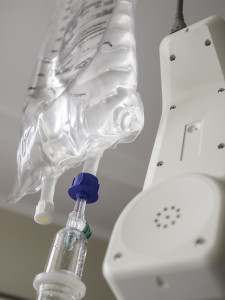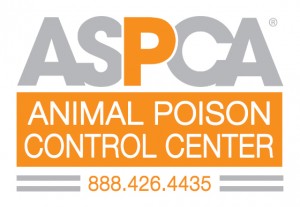What Can Happen if a Dog Eats Ibuprofen

What to do if your dog eats ibuprofen (e.g., Advil) | Dr. Justine Lee, DACVECC, DABT, Board-certified Veterinary Specialist
Posted by in Animal Safety, Blog, Pet Health
In the past few weeks, I've had multiple dog owners bring in their dog for Advil (e.g., ibuprofen) poisoning. While this is "treatable," the past few cases have been frustrating to treat. Want to know why?
Because the pet owners brought their dogs in too late…
The last two pet owners waited 4-12 hours to bring their dogs in. They tried to induce vomiting at home, and while they dogs vomited, they didn't seek further care until hours later, when their dog continued to vomit. Little did they know that the sooner that you seek veterinary attention for treatment, the better the prognosis, the more your dog can be treated, and the less damage it will cause them! These owners didn't know this, and ended up having to pay more for treatment as a result, with more damage to their dogs in the process!
If your dog eats ibuprofen, you want to seek veterinary attention immediately. Not 3-4 hours after your dog ingests Advil. Not after you've tried to induce vomiting several times and are waiting at home for hours to get him (or her) to vomit. Get to the vet now. Even if it means having to get up in the middle of the night to get to an emergency veterinarian.
First, why is ibuprofen poisonous?
Ibuprofen is a non-steroidal anti-inflammatory drug (NSAID) that has anti-inflammatory properties. Common OTC human NSAIDs include active ingredients such as ibuprofen and naproxen sodium. Examples of human NSAIDs include Advil®, Aleve®, certain types of Motrin®, etc. NOTE: You should never give any of these human NSAIDs to your dog (or cat), as it is very poisonous! Instead, there are safer veterinary NSAIDs that we use; however, these ALSO can be poisonous if ingested in large amounts. Examples of veterinary NSAIDs include carprofen, deracoxib, etogesic, previcoxib, etc.

NSAIDs like this are very poisonous to dogs & cats! Get to a veterinarian immediately if your pet got into this!
With NSAID toxicosis, the gastrointestinal tract (e.g., stomach, ingestines), kidneys, central nervous system (e.g., brain), and platelets can be affected. Cats and certain breeds of dogs (e.g., German shepherds) seem to be more sensitive to NSAIDs, and should be treated aggressively. With cats, severe acute kidney injury (AKI) is often more clinically seen with NSAID toxicosis at lower doses (as compared to dogs). With dogs, signs secondary to GI ulceration (e.g., vomiting, diarrhea, black tarry stool, vomiting blood, etc.) are more commonly seen initially, followed by secondary AKI.
Clinical signs of NSAID poisoning include:
- Not eating
- Vomiting
- Vomiting blood
- Diarrhea
- Black-tarry stool (melena)
- A painful abdomen
- Lethargy
- Bad breath
- Dehydration

Treatment for ibuprofen poisoning in dogs & cats includes aggressive intravenous fluids
So how do we treat ibuprofen poisoning in dogs and cats?
Treatment should be initiated immediately, depending on what dose your dog or cat got into. This includes immediate decontamination (e.g., inducing vomiting if your dog isn't already vomiting, and if the ibuprofen was recently ingested), administration of activated charcoal (to bind up the poison from the stomach and intestines), then getting blood work immediately. Depending on the dose ingested, further treatment will include anti-vomiting medication, stomach protectants (e.g., H2 blockers like Pepcid-AC, sucralfate), aggressive IV fluid therapy (to help maintain renal blood flow), and symptomatic and supportive care. If the dose ingested was a kidney failure dose (which will depend on what type of NSAID it is), blood work typically needs to be performed every 24 hours for 2-3 days while your dog is hospitalized to make sure that kidney failure hasn't developed.
When in doubt, call your veterinarian, your emergency veterinarian, or the ASPCA Animal Poison Control Center at 888-426-4435 for life-saving advice (24/7!).

You can check out this video to learn more about human medications that are poisonous to pets here. Again, when in doubt, contact the ASPCA Animal Poison Control Center at 888-426-4435.
What Can Happen if a Dog Eats Ibuprofen
Source: https://drjustinelee.com/dog-eats-ibuprofen-e-g-advil-dr-justine-lee-board-certified-veterinary-specialist/
0 Response to "What Can Happen if a Dog Eats Ibuprofen"
Post a Comment